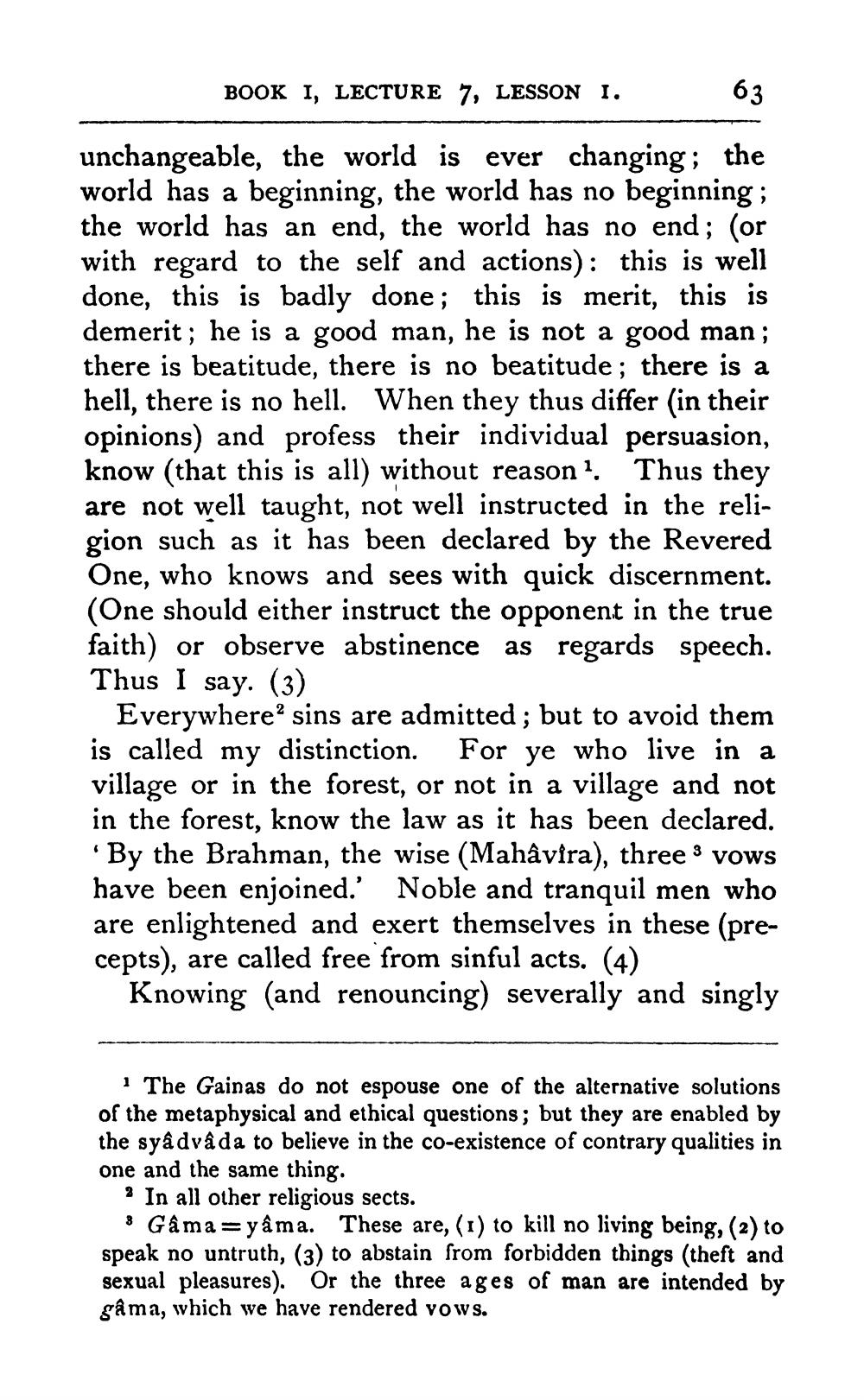________________
BOOK I, LECTURE 7, LESSON 1.
63
unchangeable, the world is ever changing; the world has a beginning, the world has no beginning; the world has an end, the world has no end; (or with regard to the self and actions): this is well done, this is badly done; this is merit, this is demerit; he is a good man, he is not a good man; there is beatitude, there is no beatitude; there is a hell, there is no hell. When they thus differ (in their opinions and profess their individual persuasion, know (that this is all) without reason. Thus they are not well taught, not well instructed in the religion such as it has been declared by the Revered One, who knows and sees with quick discernment. (One should either instruct the opponent in the true faith) or observe abstinence as regards speech. Thus I say. (3)
Everywhere” sins are admitted ; but to avoid them is called my distinction. For ye who live in a village or in the forest, or not in a village and not in the forest, know the law as it has been declared. * By the Brahman, the wise (Mahâvira), three 3 vows have been enjoined.' Noble and tranquil men who are enlightened and exert themselves in these (precepts), are called free from sinful acts. (4)
Knowing (and renouncing) severally and singly
· The Gainas do not espouse one of the alternative solutions of the metaphysical and ethical questions; but they are enabled by the sya dva da to believe in the co-existence of contrary qualities in one and the same thing.
* In all other religious sects.
8 Gama=yâma. These are, (1) to kill no living being, (2) to speak no untruth, (3) to abstain from forbidden things (theft and sexual pleasures). Or the three ages of man are intended by gâma, which we have rendered vows.




